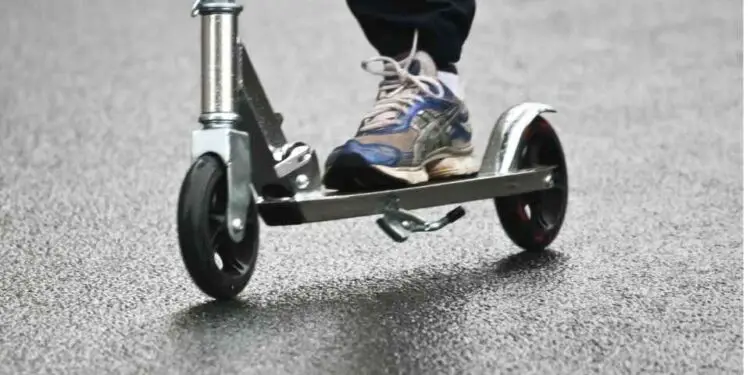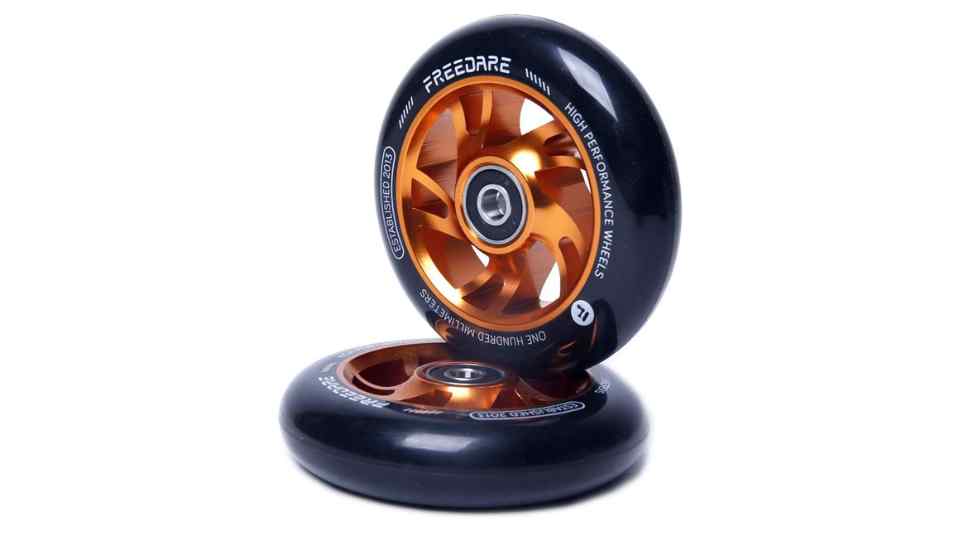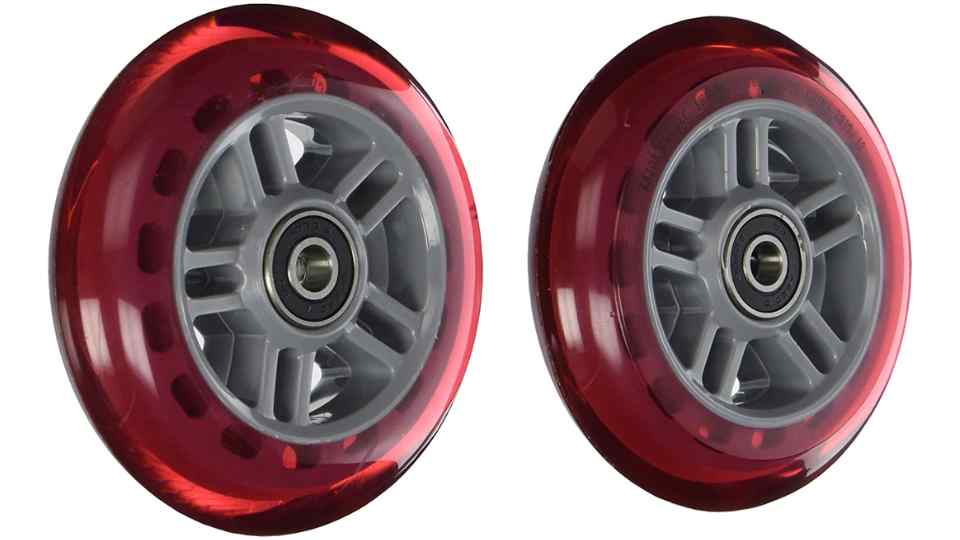Are you looking for the perfect set of wheels for your scooter? Choosing the right type and size of wheels can significantly enhance your riding experience. In this ultimate guide to scooter wheels, we will discuss everything you need to know about scooter wheels, from different types and sizes to proper maintenance and replacement.
Types of Scooter Wheels
The most common types of scooter wheels are PU (Polyurethane) wheels, metal core wheels, hollow core wheels, spoked wheels, air-filled wheels, solid rubber wheels, and nylon wheels. Each type has its unique properties that affect the ride quality, durability, and price.
- PU Wheels: PU wheels are the most popular type of scooter wheels due to their affordable price, lightweight, and smooth ride. PU wheels are made of polyurethane, a type of plastic that provides excellent grip and shock absorption.
- Metal Core Wheels: Metal core wheels have a metal center covered with polyurethane, providing excellent durability and a smoother ride than PU wheels. These wheels are ideal for performing tricks and jumps.
- Hollow Core Wheels: Hollow core wheels are similar to metal core wheels but are lighter in weight. These wheels are perfect for riders who prefer a lighter scooter for performing tricks.
- Spoked Wheels: Spoked wheels are the lightest type of wheels and are perfect for freestyle scootering. These wheels are made of a combination of metal and nylon spokes and have excellent grip and speed.
- Air-filled Wheels: Air-filled wheels are made of rubber and filled with air, providing a smoother and more comfortable ride. These wheels are suitable for riding on rough terrain and are commonly found on off-road scooters.
- Solid Rubber Wheels: Solid rubber wheels are durable and long-lasting, providing excellent grip and stability. These wheels are perfect for riding on smooth surfaces, such as concrete or asphalt.
- Nylon Wheels: Nylon wheels are lightweight and durable, providing a smooth ride. These wheels are perfect for commuting and recreational riding.
Scooter Wheel Sizes
Wheel sizes vary from standard size to oversized and custom sizes. The standard wheel size is 100mm, while oversized wheels can range from 110mm to 125mm.
Oversized wheels provide more speed and better shock absorption, making them perfect for performing tricks and jumps. Custom-sized wheels are also available, but they require special order and are more expensive than standard and oversized wheels.
When choosing the right wheel size for your scooter, consider your riding style, terrain, and personal preferences. If you’re new to scooter riding, it’s recommended to stick with the standard wheel size until you feel comfortable experimenting with larger wheels.
Scooter Wheel Durometer
Durometer is the measure of the hardness of the wheel. Wheels come in different durometer levels, usually ranging from 70A to 110A. The higher the durometer, the harder the wheel.
The durometer affects the ride quality and performance of the scooter. Softer wheels have better shock absorption and grip, while harder wheels provide more speed and durability. When selecting the right durometer for your scooter, consider your riding style, terrain, and weight.
Scooter Wheel Bearings
Wheel bearings are the small metal rings that sit inside the wheel hub, allowing the wheel to rotate smoothly. The quality of bearings affects the speed, durability, and smoothness of the ride.
Scooter bearings come in two types: ABEC and Non-ABEC. ABEC bearings are commonly used in scooters and provide a smooth and fast ride, while Non-ABEC bearings are less expensive and provide a less smooth ride.
When choosing the right bearings for your scooter, consider your riding style, terrain, and personal preferences. It’s also essential to regularly clean and lubricate your bearings to maintain their quality and prolong their lifespan.
Scooter Wheels Maintenance
Proper maintenance is essential to prolong the lifespan of your scooter wheels and ensure a smooth and safe ride. Regular cleaning, inspection for damage, and replacement of worn-out wheels are necessary to maintain the quality of your scooter wheels.
To clean your wheels, use a soft cloth or a brush and mild detergent to remove any dirt or debris. Inspect your wheels regularly for any signs of wear and tear, such as cracks or chips. Replace any worn-out wheels immediately to avoid accidents and ensure a smooth ride.
Tightening bolts and nuts and lubricating bearings are also essential maintenance tasks that can prolong the lifespan of your wheels.
Frequently Asked Questions
-
How long do scooter wheels last? Scooter wheels’ lifespan varies depending on usage, terrain, and maintenance. On average, wheels can last up to six months to a year.
-
Can I replace scooter wheels myself? Yes, you can replace wheels yourself. However, it’s recommended to seek professional help if you’re not confident in your skills.
-
How do I clean scooter wheels? Use a soft cloth or brush and mild detergent to remove any dirt or debris from your scooter wheels.
-
What should I do if my scooter wheels wobble? If your wheels wobble, inspect your wheels for damage or wear and tear. Replace any worn-out or damaged wheels immediately.
-
How often should I replace my scooter wheels? It’s recommended to replace your wheels every six months to a year, depending on usage, terrain, and maintenance.
Conclusion
Scooter wheels play a crucial role in enhancing your riding experience, and choosing the right type, size, and maintenance can significantly affect your scooter’s performance and lifespan. Consider your riding style, terrain, and personal preferences when selecting the right wheels, and don’t forget to maintain them regularly to ensure a smooth and safe ride. With this ultimate guide to scooter wheels, you’re now equipped with the knowledge and tips to make an informed decision and enjoy the best scooter riding experience.


















